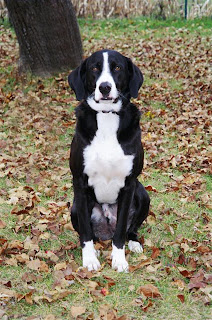
WHAT’S IN A NAME? WHAT’S IN A DOG? (part two) In my last entry, I promised a quote from well-known psychologist and dog expert Stanley Coren, taken from his excellent book, The Consciousness of Dogs . I’m going to deliver on that promise, but first, what exactly is consciousness? If you look in the Random House College Dictionary, you get this: “the state of being conscious; awareness. the thoughts and feelings, collectively, of an individual or of an aggregate of people. full activity of the mind and senses. awareness of something for what it is: consciousness of wrongdoing.” Of these definitions, “awareness of something for what it is” strikes me as the key. To be possessed of consciousness, I have to know what I am, and I have to know what other things are that aren’t me. You don’t have consciousness unless you can make this distinction. I have read that children are only partially conscious until sometime around the age of five. At this point, they have fully lost t...




